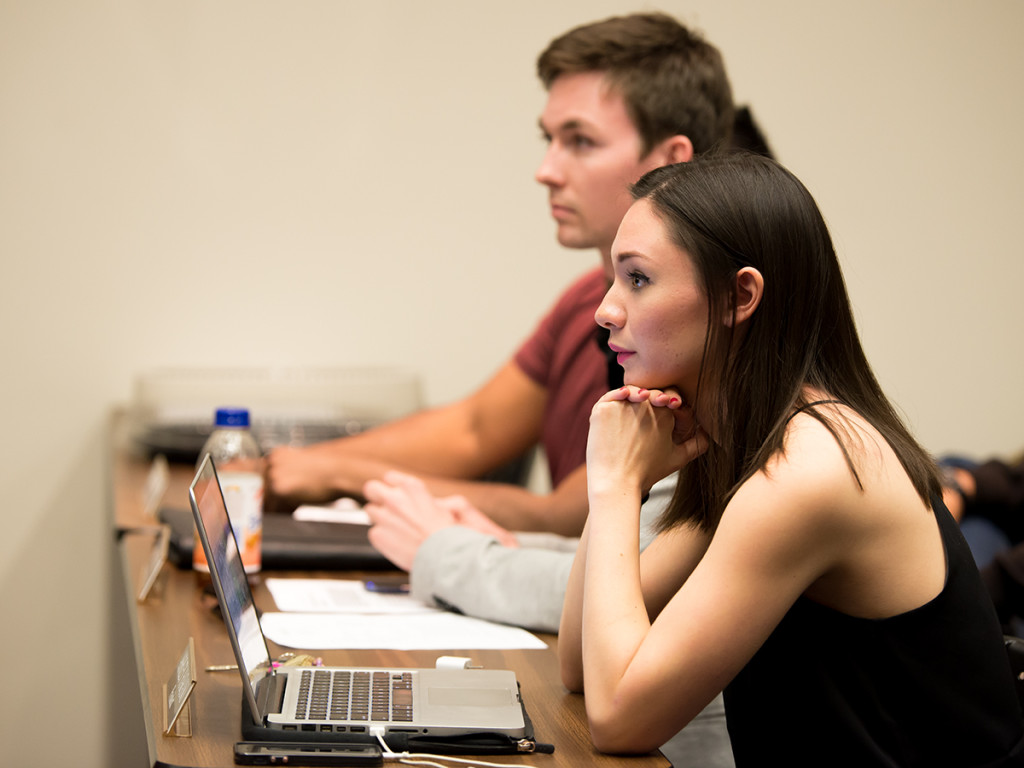
Several students spoke at the public forum section of the ASUCR senate meeting to express their concerns with recent actions taken by ASUCR in regards to making the controversial campaigning technique laptopping legal as well as passing a resolution last week clarifying their roles and requesting corrections from this publication in regards to the elections controversy last spring. Polling will be taking place solely at the Bell Tower during spring quarter.
According to the ASUCR Elections code, laptopping is defined as “when a candidate, party, pro-group, con-group, or anyone with approximate relation to them, approaches a student and asks that student to log onto a computer or other electronic device and vote in the election (usually coaxing student to vote in a certain way).”
First-year political science major Julia Schemmer inquired as to why ASUCR didn’t send out a survey to the student body to gauge how students felt about making laptopping legal and also asked for a revote after a survey was sent out and the results analyzed.
Senator Katherine Tatley responded, “I do believe that if you do know students who want a vote on this … I think it would be fair to send out a survey. My only concern is … timing.”
Reyes also addressed Schemmer’s concerns, explaining, “In regards to this; that’s been a discussion that’s been ongoing … In the last two years I was on the Judicial Council attempting to adjudicate on laptopping. I will say this explicitly now that there was sabotage in many forms and one of the most prevalent ways that that was attempting to be accomplished was by the framing of laptopping.”
“In addition to the fact that I’ve already presented to the Judicial Council and multiple other parties that my elections committee will be doing a campaign informing students about laptopping and giving them further information to exercise their autonomy in their voting and make sure that while yes, laptopping is acceptable at this point, it is frowned upon.”
Responding to another student’s grievance about the laptopping resolution, BCOE Senator Erin Sunga stated, “I wasn’t here at that meeting that this was voted on so I apologize for that because I’m more toward what you’re saying right now.”
Citing reporting from the Highlander on a resolution passed two weeks ago that requested corrections on reporting that covered last year’s elections, another student attending the meeting stated, “I would just like to comment on what the average student feels when they read this is that you guys are trying to cover for the individuals who were censured last year. If I was applying for a job, I would not want an employer to find all that was written about me regarding censure … on a Google search. This literally looks like 1970 and it looks like you guys are trying to hide the tapes.”
Vice President of Internal Affairs Michael Ervin responded, stating, “(The resolution) was just an understanding that the facts as they were presented were actually disputed and presented in a way that was very one-sided … It wasn’t just the judicial council that ruled on this. For instance, UCR’s own attorney also did a third-party review when this reached a crescendo … He went through all of the documents and came to the exact same conclusion. This is not just the senate making a unilateral decision on events that happened to us … I’m saying this emphatically only because this is a conversation that I do not want to have to keep revisiting every time it gets reported in the Highlander. I’d really like to put this matter to rest.”








